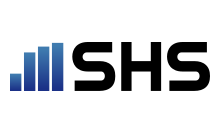What is virtual assistance?
According to the Cambridge Dictionary, an assistant is someone who helps someone do their job.
Assistant: “Someone who helps someone else to do a job”
But what distinguishes an assistant?
An assistant needs certain abilities (skills) to be able to offer (competent) help to someone. Human assistants (as a rule) already have certain basic skills that are of fundamental importance.
These basic skills include:
- Eyes or seeing (what is happening)
- Ears or hearing (what can colleagues tell me about it)
- Brain or intelligence (what could be the cause)
- Mouth or speech (ask others or give instructions)
- Hands or actions (possibilities of intervention in the situation)
Virtual assistance
A virtual assistant must therefore also have (at least) these basic skills in order to be able to offer competent assistance.
For this purpose, the virtual assistant needs:
- eyes = sensors
- Ears = machine communication to other systems
- brain = algorithms for data analysis
- Mouth = bidirectional communication possibilities to other systems
- Hands = access to actuators
The “Virtual Production Assistant” (Vipra) provides exactly these basic capabilities and offers almost unlimited expansion possibilities in an open and modular system without manufacturer commitment.
“Nobody is perfect”
True to the motto “Nobody is perfect”, SHS is working on combining interesting players and their specific competencies to generate a high-performance overall system with almost any variety of competencies.
The core competencies of SHS lie in the digitalization of production systems from the field of plastics processing as well as the development of control systems, individual solutions and machine connections. At the same time, SHS is an established supplier of software solutions in the field of computer simulation and a recognized process expert in plastics processing.
SHS bundles these competences in the Vipra system and thus generates the basis for the application of a variety of other technologies.
Our guiding principle
Vipra offers a solid and open basis: Vipra collects data from existing systems, regardless of manufacturer or year of construction, and allows third parties to access and process this data.
Vipra generates data: Vipra collects data from your processes and stores this data in a secure and central database. This way you have all data permanently in view, whether for traceability or for the use of data-driven algorithms.
Vipra links systems. Third-party suppliers/partners who can provide information from the production process are welcome to communicate your data to the Vipra system. No matter whether cooling section, ultrasonic sensor, wall thickness measurement, cavity pressure, hot runner or dryer, relevant information is stored in a central location without the manufacturing company or individual machine manufacturers having to face the unmanageable variety and individuality of the “machine communication task”.
Vipra visualizes interrelationships: Vipra offers the possibility of viewing all the data the system sees in clear diagrams and graphic visualizations. Develop your own interfaces and customize dashboards and views. This way you have an overview of everything that is important to you.
Vipra analyses automatically: The pure visualization is nice, but it’s better if the data analyzes itself.
Partner network
As there is currently no player in the plastics processing industry that covers all these competencies in one company, the power of the total solution lies in the meaningful combination of capabilities and the exploitation of synergies. Vipra provides the platform for this and is open to any partnership imaginable.
Feel free to contact us!

